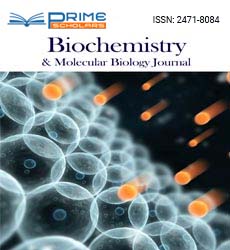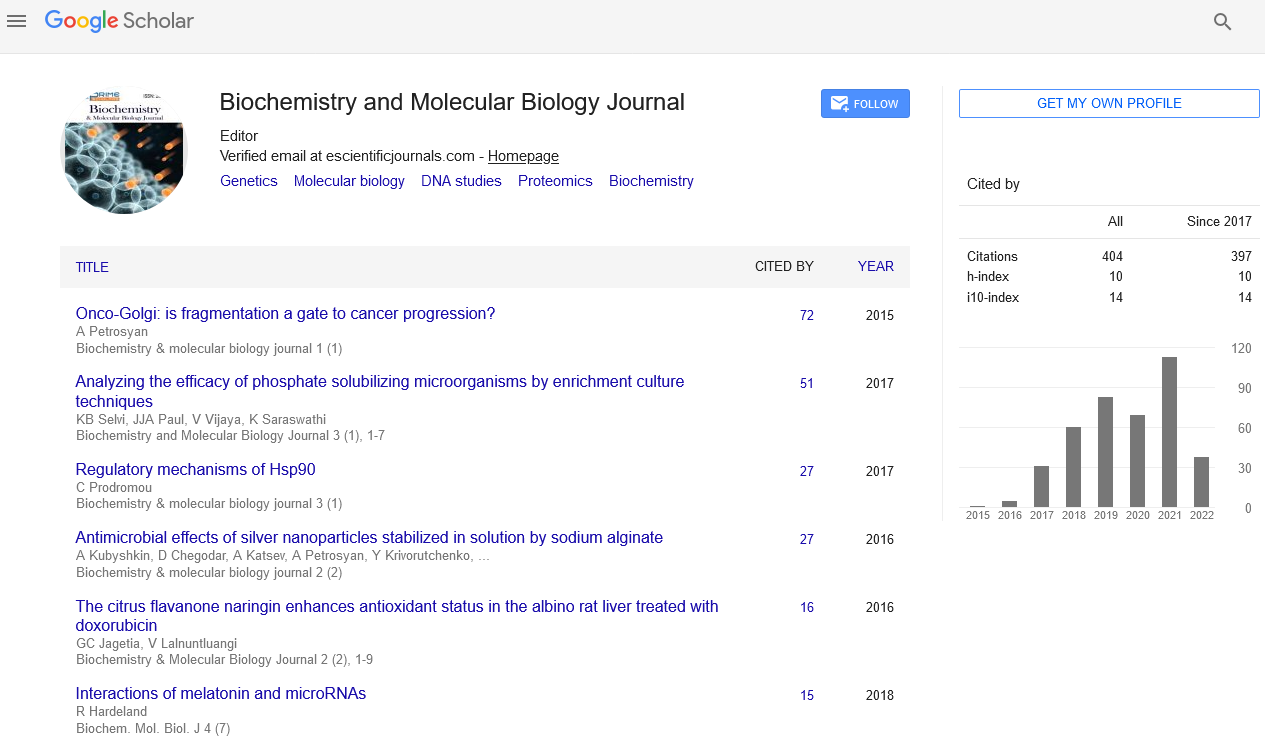Commentary - (2022) Volume 8, Issue 9
Impact of Resistant Dextrin on the Microbiota and Homeostasis of Intestinal Gases
John W Davis*
Department of Biochemistry, The University of Utah, USA
*Correspondence:
John W Davis,
Department of Biochemistry, The University of Utah,
USA,
Email:
Received: 31-Aug-2022, Manuscript No. IPBMBJ-22-14661;
Editor assigned: 02-Sep-2022, Pre QC No. IPBMBJ-22-14661(PQ);
Reviewed: 16-Sep-2022, QC No. IPBMBJ-22-14661;
Revised: 21-Sep-2022, Manuscript No. IPBMBJ-22-14661(R);
Published:
28-Sep-2022, DOI: 10.36648/2471-8084-8.9.93
Description
Previous studies have demonstrated the prebiotic benefits of a
resistant dextrin soluble fibre as well as its positive effects on satiety
and blood glucose regulation. Our goal was to show how the
continuous administration of resistant dextrin affected gut microbiota
composition, digestive symptoms, and gas production in the
intestine. For four weeks, resistant dextrin was administered to
20 healthy volunteers. The following outcomes were assessed before,
during, and two weeks after administration: Gas expulsions
through the anals during the day; digestive perception, girth, and
gas production in response to a typical meal; digestive and sensory
responses to a comfort food; by magnetic resonance, the volume
of biomass in the colon; shotgun sequencing of the taxonomy and
metabolic processes of the faecal microbiota, metabolomics of
urine When dextrin was administered, there was initially a rise in
gas production and symptoms connected to gas in the colon.
A decline followed, which grew worse after dextrin was halted.
Dextrin increased the amount of colonic biomass, which led to
changes in microbial metabolism and composition, including an
increase in species that produce short-chain fatty acids and adjustments
to the metabolism of bile acids and biotin. These results
suggest that soluble fibre consumption alters the gut microbiota
to fermentative pathways with reduced gas production.
The aetiology of symptoms like borborygmi, stomach bloating,
distension, and pain associated with gas, such as borborygmi, irregular
gas evacuation, is frequently discussed in clinical practise.
However, it’s unclear whether intestinal gas and adverse effects
are related. The microbiota’s fermentation of food components
that bypass small intestine absorption and enter the colon is primarily
what causes intestinal gas to be produced. As a result, two
factors dietary substrate availability and microbial metabolic activity
determine the intestinal gas metabolism. Prebiotics are substances
that host bacteria employ only when they want to boost
their own health.
Clinical investigations showed that it is well tolerated, has health
advantages for blood glucose control, satiety, sustained energy,
and gut health, as well as the favourable modification of gut
microbiota. Resistant dextrin may disrupt gas metabolism in the
colon, which may impact digestion, however this has not been established.
Resistant dextrin administration, according to our hypothesis,
would influence the composition and metabolic activity
of the gut microbiota as well as the balance of intestinal gas. Our
aim was to investigate the effects of long-term resistant dextrin
administration on gas generation, gastrointestinal symptoms, and
the metabolism and make-up of the gut microbiota. In order to
evaluate the effects of dextrin during, after, and after administration,
we created a pilot research.
An administration of a resistant dextrin soluble fibre results in adaptation
of the intestinal microbiota and intestinal gas homeostasis
that persists after the administration period. Targeted and untargeted
metabolomics investigations suggest that dextrin ingestion
may boost short-chain fatty acid synthesis, which is confirmed by
the increase in several SCFA-producing species. Furthermore, our
research indicated that dextrin administration had a minor impact
on the metabolism of bile acids and biotin. A genome-wide investigation
of the faecal microbiota revealed the modulatory influence
of resistant dextrin on a number of bacteria that produce SCFA.
As a result, the possible advantages brought on by dextrin may be
attributed to species that produce butyrate that have anti-inflammatory
properties, such as Eubacterium eligens. A wide range of
bacterial metabolic functions, including the metabolism of ribonucleotides,
were affected by resistant dextrin in a similar manner.
Acknowledgement
None.
Conflict of Interest
The author declares there is no conflict of interest in publishing
this article has been read and approved by all named authors.
Citation: Davis JW (2022) Impact of Resistant Dextrin on the Microbiota and Homeostasis of Intestinal Gases. Biochem Mol Biol
J. 8:93.
Copyright: © 2022 Davis JW. This is an open-access article distributed under the terms of the Creative Commons Attribution
License, which permits unrestricted use, distribution, and reproduction in any medium, provided the original author and source
are credited.

